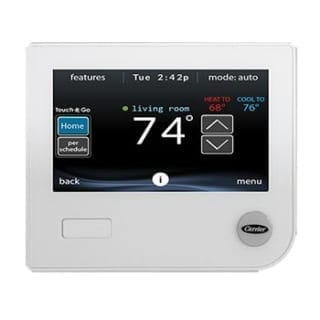Summer is finally here, and many of us look forward to fun in the sun, family gatherings, and relaxing days by the pool. However, amidst all the excitement, a good homeowner knows not to overlook an essential aspect of the season: the HVAC system.
The rising temperatures mean your air conditioner will be working overtime. Without proper maintenance, you could be in for higher energy bills, uncomfortable living conditions, and even costly repairs.
Wright’s Air has put together a few useful pointers to help ensure your system runs smoothly, whether you’re doing the work yourself or bringing in an expert. Let’s take a closer look!
Importance of Regular Maintenance
One of the best ways to prevent unexpected breakdowns and maintain the efficiency of your HVAC system is to schedule regular maintenance. Ideally, you should have Wright’s Air out twice a year for a complete system tune-up.
During a professional maintenance check, our technician will:

- Tighten electrical components
- Clean the condensate lines
- Clean both the indoor and outdoor coils
- Lubricate necessary components
- Change the air filters
- Check refrigerant levels
- Inspect the overall system for signs of wear and tear
This thorough check-up acts as a safety net against future problems. It also keeps your manufacturer’s warranty valid, which can save you money if major repairs are needed down the line. Don’t wait until your system fails; a small investment in maintenance now can prevent costly repairs later.
Changing Air Filters Regularly
The air filters in your HVAC system often go unnoticed, but they play a crucial role in keeping the air clean and safe. They trap dust, pollen, and other airborne pollutants, preventing them from circulating in your home. However, when filters become clogged, they restrict airflow, making your system work harder and reducing efficiency.
To keep your air conditioner running smoothly, check your filters every month and replace them every one to three months. If you have pets or allergies, you should change them more frequently. Some filters are washable, saving you money in the long run. Just remember to let them dry completely before reinstalling them.
Upgrading Your Thermostat

If you haven’t upgraded to a smart thermostat yet, now is the perfect time.
Smart thermostats can significantly reduce wear and tear on your HVAC system by optimizing its operation based on your daily schedule. They can also help you save on energy costs, with some models promising up to 20% savings annually.
Look for an Energy Star®-certified thermostat for the best energy efficiency. Wright’s Air would be happy to install your new thermostat and provide helpful advice on setting cooling times that align with your lifestyle.
Ensuring Proper Airflow
Proper airflow is critical for your HVAC system’s efficiency. Barriers or obstructions within your air conditioning unit can cause it to operate longer, resulting in increased energy costs and a decrease in its overall lifespan.
Ensure the vents and registers inside your home are not blocked by furniture, curtains, or other household items. Regularly vacuum these areas to remove dust and debris that could impede airflow.
Your outdoor condenser unit needs plenty of space to breathe. Clear away any leaves, twigs, or other debris that might have accumulated around the unit. Trim back any plants or shrubs to ensure at least two feet of clearance on all sides. If a grate or fan cover covers your condenser, remove it periodically and clean it using a vacuum or soft brush.
Checking for Pests
The sight of droppings, chewed wires, or damaged components can indicate the presence of pests in your HVAC system. Rodents, insects, and other small animals scurry and crawl around the outdoor unit, causing damage with their tiny claws and teeth.
With summer weather already upon us, you should inspect the outdoor unit for signs of pests. If you notice any nests or droppings, contact a professional pest control service to address the issue.
Check the ductwork and vents inside your home for any signs of pests. Regular cleaning and sealing of any gaps can help prevent them from entering your HVAC system.

Testing Your A/C Unit
Testing your air conditioner before the peak of summer ensures it’s ready to handle the heat. Turn on the unit and set it to a comfortable temperature. If the air isn’t cool enough, then you need to give us a call as soon as possible.
While testing, also inspect the ductwork for leaks or obstructions. Leaky ducts can cause cool air to escape, reducing your system’s efficiency. Signs that it’s time for a duct cleaning include visible mold, dust blowing out of vents, or recent renovations that generated a lot of dust.
Once leaks are sealed, the musty and dusty smells from outside no longer infiltrate the air in your home, creating a fresher and cleaner environment.
Advanced Considerations
If your HVAC system is nearing the end of its life, consider upgrading to a high-efficiency model. Modern systems are more efficient and can save you money in the long run. Consult with the pros at Wright’s Air to determine the best options for your home.
DIY Maintenance Tips
Here are some simple maintenance tasks you can handle yourself to keep your HVAC system in top shape:
- Clean Around the Outdoor Unit: Turn off the power to the unit and clear away any debris. Use a garden hose to gently spray the unit and remove dirt from the coils. Be careful not to spray into the electrical panel.
- Vacuum Indoor Vents: Regularly vacuum your indoor vents to remove dust and debris. This improves airflow and helps your system run more efficiently.
- Increase Thermostat Settings: Raise the thermostat setting by a few degrees during the hottest parts of the day. This can save energy and reduce the load on your air conditioner.
- Re-arrange The Furniture: Lamps, televisions, and other heat-producing appliances can trick your thermostat into thinking the room is warmer than it is, causing the air conditioner to run longer. Keep these items away from the thermostat to ensure accurate readings.
- Close Blinds and Curtains: Closing blinds and curtains during the day can block out the sun’s heat, keeping your home cooler and reducing the workload on your air conditioner.
- Clear Your Drain Line: Locate the drain line near the indoor cooling coil. Pour a cup of chlorine bleach followed by a gallon of water down the drain to keep it clear of algae and sludge.
- Schedule Chores During Off-Peak Hours: Avoid using your oven, dryer, or other heat-producing appliances during the hottest parts of the day. This reduces the load on your air conditioner and keeps your home cooler.
- Insulate Exposed Ductwork: Inspect your ductwork for exposed sections and add insulation where needed. This prevents cool air from escaping and improves your system’s efficiency.
Final Thoughts
Maintaining your HVAC system is essential for keeping your home comfortable and energy-efficient during summer. By following these tips, you can ensure your system runs smoothly, avoid costly repairs, and save on energy bills. Whether you’re performing simple DIY tasks or scheduling professional maintenance, a little effort now can make a big difference when the temperatures soar.
Remember, your HVAC system is a vital part of your home. Treat it well, and it will keep you cool and comfortable all summer long. For any tasks beyond your expertise, don’t hesitate to give us a call at (903) 455-5662. We will put our expertise and know-how to work ensuring your system runs at its optimal level.
So, sit back and relax… and enjoy the summer!

